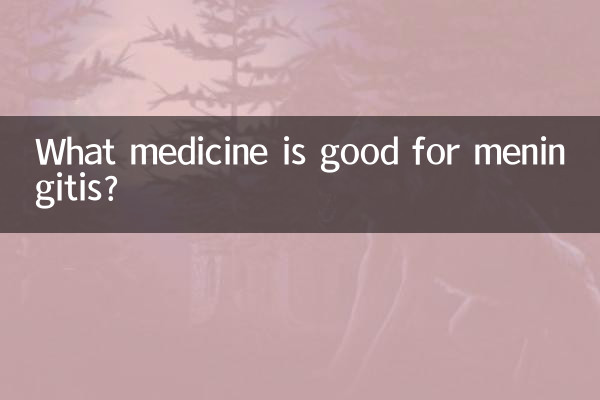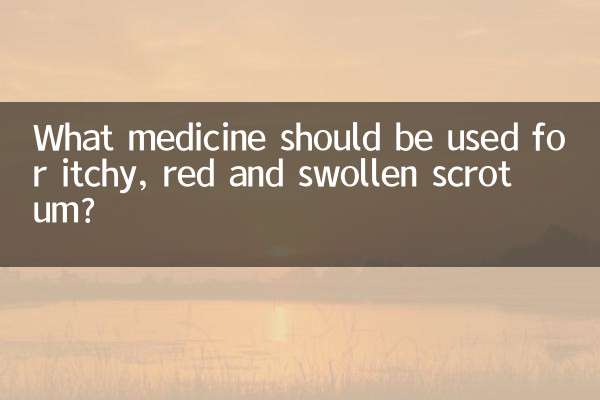What medicine is good for meningitis?
Carditis is an inflammatory disease of the outer lining of the heart (pericardium) that can be caused by infection, autoimmune disease, or other causes. The choice of drug to treat meningitis depends on the cause and severity of the condition. The following is a compilation of authoritative information on the treatment of meningitis from hot topics on the Internet in the past 10 days for reference.
1. Common treatment drugs for meningitis

| drug type | Representative medicine | Applicable situations | Things to note |
|---|---|---|---|
| Nonsteroidal anti-inflammatory drugs (NSAIDs) | ibuprofen, aspirin | Mild to moderate pain and inflammation | Avoid long-term use, may cause gastrointestinal side effects |
| Glucocorticoids | Prednisone, methylprednisolone | severe inflammatory or autoimmune pericarditis | The dose needs to be gradually reduced to avoid sudden discontinuation. |
| antibiotics | Penicillin, vancomycin | bacterial pericarditis | Need to be selected based on etiological examination |
| antituberculosis drugs | Isoniazid, rifampicin | Tuberculous pericarditis | Requires combined medication and longer course of treatment |
| colchicine | colchicine | Prevent recurrence | May cause diarrhea, blood routine needs to be monitored |
2. Medication recommendations for different types of meningitis
1.viral pericarditis: Mainly symptomatic treatment, NSAIDs or colchicine are commonly used. If the pain is severe, corticosteroids can be used short-term.
2.bacterial pericarditis: Sensitive antibiotics need to be selected based on etiological examination, and pericardial drainage is required if necessary.
3.Tuberculous pericarditis: Standardized anti-tuberculosis treatment is required, and the course of treatment is usually 6-9 months.
4.autoimmune pericarditis: Immunosuppressive therapy, such as corticosteroids or biologics, may be required.
3. Medication precautions
| Things to note | Specific content |
|---|---|
| Take medication as directed by your doctor | Do not adjust medication dosage or stop medication on your own |
| Regular review | Monitor electrocardiogram, cardiac ultrasound and other indicators |
| drug side effects | Pay attention to gastrointestinal reactions, liver function damage, etc. |
| drug interactions | Consult a doctor when using multiple drugs together |
| living habits | Quit smoking, limit alcohol consumption, and eat a low-salt diet |
4. Adjuvant treatment suggestions
1.rest: Bed rest is required in the acute stage to reduce cardiac load.
2.diet: Light and easy-to-digest diet, limit sodium intake.
3.Monitor:Regular review of electrocardiogram, cardiac ultrasound, etc.
4.Complication prevention: Pay attention to early symptoms of serious complications such as cardiac tamponade.
5. Latest Treatment Progress
According to recent medical literature, colchicine has shown promising results in preventing recurrence of pericarditis. Biological agents such as anakinra are also expected to become new treatment options for refractory pericarditis. However, the specific medication plan needs to be formulated by a specialist.
6. When Do You Need Medical Treatment?
You should seek medical attention immediately if the following conditions occur: persistent chest pain, difficulty breathing, changes in consciousness, edema of the lower limbs, etc. The treatment of meningitis requires an individualized plan. This article is for reference only. Please follow your doctor's advice for specific medication.
With standard treatment, most patients with meningitis have a good prognosis. The key is early diagnosis, rational use of medication and regular follow-up.

check the details

check the details